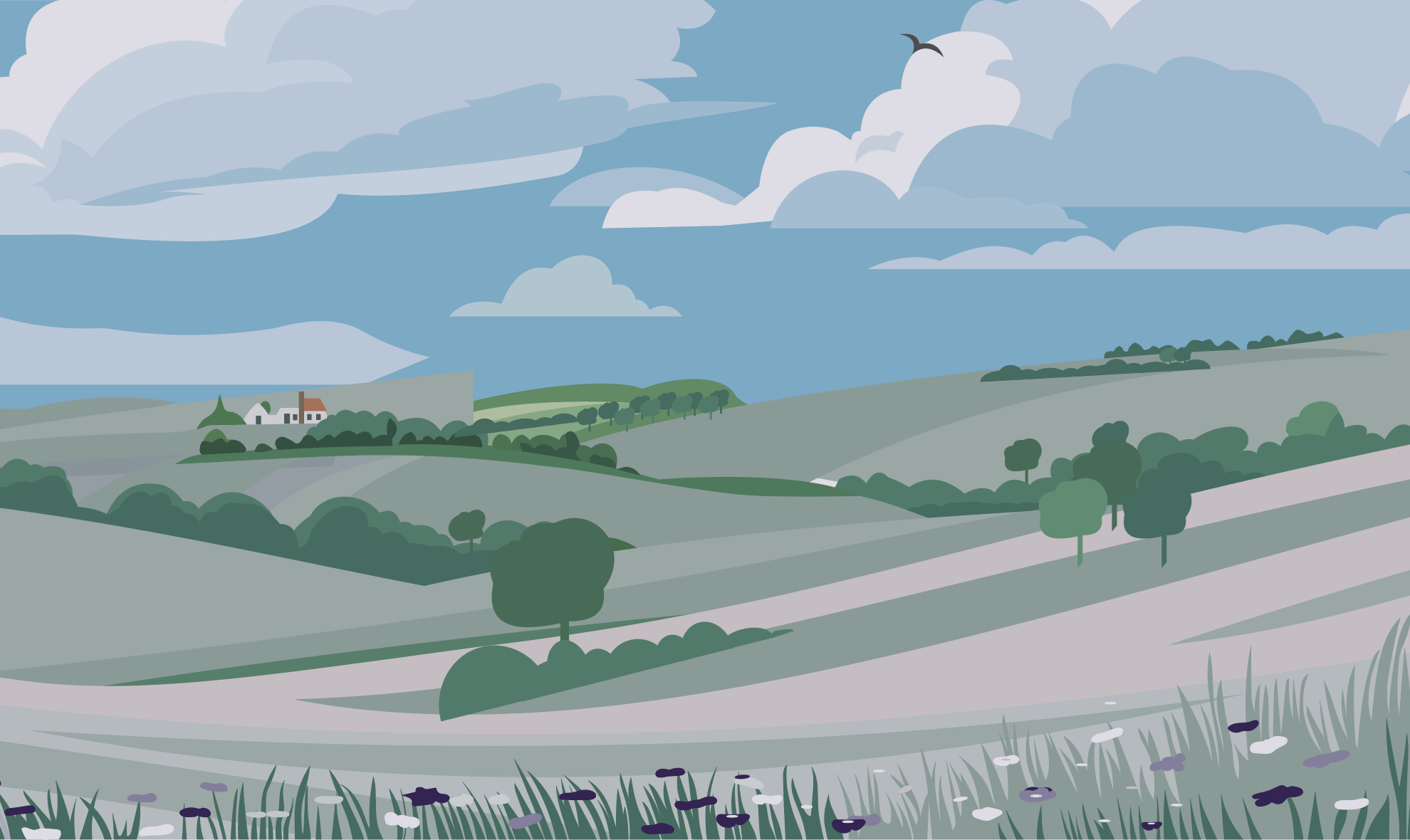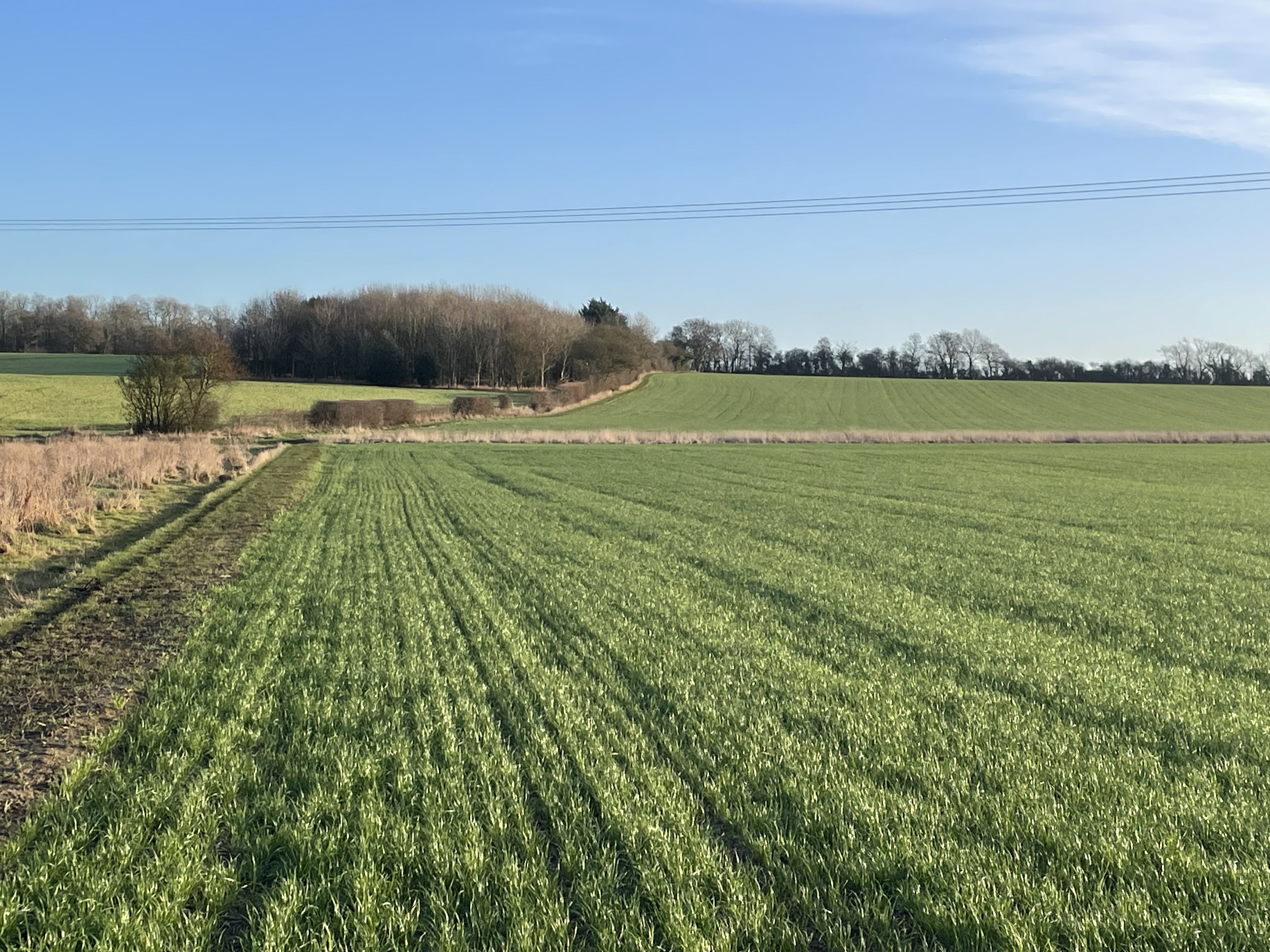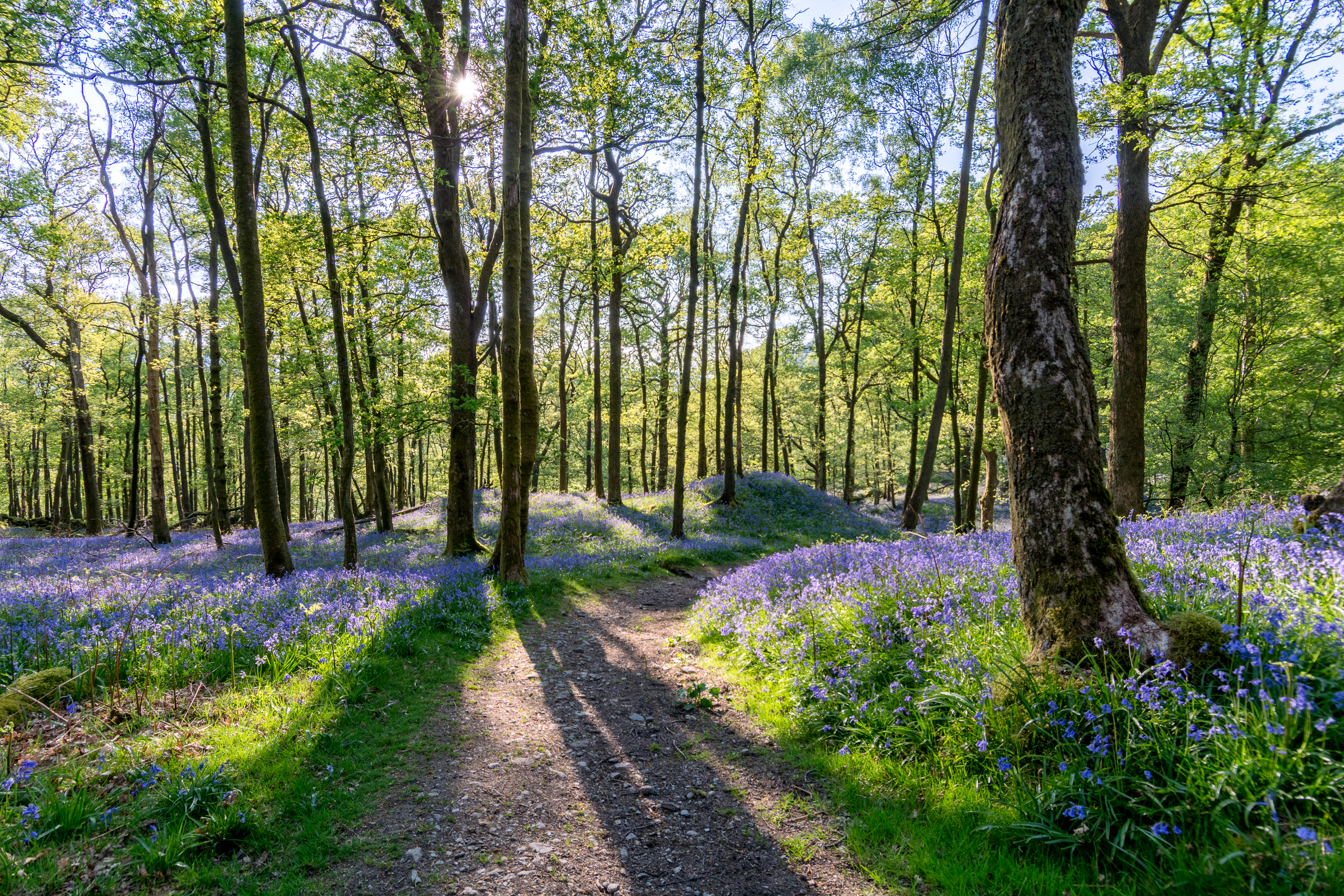
As a firm with a huge range of experience in securing planning permission for rural clients, Carter Jonas has been involved in most businesses rooted in the countryside.
But when Associate Partner Nicola Quick was asked to help an entrepreneurial couple prepare an application for a dwelling to support their established charcoal business, it was a first for her and the
wider partnership.
She knew securing planning permissions would be tricky, so set about putting together an application which covered every possible base in order to give it the best chance of success.
The couple in question purchased their own area of woodland in 2018. Their existing forestry business, which offered log sales and forestry, tree and hedgerow management, subsequently evolved to produce charcoal and
sawn timber.
Revitalising rural ventures
Sign up to receive content like this directly to your inbox
The role of Carter Jonas
The couple know their business better than anyone – it was just a case of focusing on the right parts and presenting it in a way that ticked the right boxes,” Nicola explains.
Her role was to gather supporting documentation and evidence to back up the couple’s claim that a residence onsite was necessary.
“I went right back to basics and described exactly what their business was, so that hopefully a layman could pick up the report and understand why they needed to live on site.”
Proving there was a functional need for a dwelling without the presence of livestock was a potential stumbling block Nicola needed to overcome.
“It is very rare to secure planning permission for a rural workers’ dwelling on a site without livestock,” Nicola explains. “In that instance, animal welfare would be the reason for someone needing to be on site.”
Nicola managed to demonstrate that, like someone who needed to be near to livestock in order to hear if one was in distress, the owners of the charcoal business also needed to be close to the operation so that they could hear if something went wrong.
“We needed to calculate standard man days for the application in a recognisable format that would usually be found in books such as Agricultural Budgeting and Costings books or the John Nix Farming Management book. There are no such standards for charcoal and forestry and there are so many variables within charcoal production that it really is individual to each business,” Nicola explains.
Once the functional element of the application was fulfilled, Nicola turned her attention to the financial component.
As well as fulfilling their business needs, securing planning permission has allowed the young couple to reside on the outskirts of their local village after being priced out by soaring house prices.
“They’re a young couple, who are working incredibly hard to be able to live in the countryside, but they can’t afford to buy a house in their local village because prices are ridiculous,” Nicola shares. “They’re exactly what planning is meant to be there for."
The parish council fully supported the proposal and the pair received a lot of supporting letters – usually there is one individual who objects, but everyone supported this application unanimously.”
The future
“They decided to pursue charcoal production because their woodland acquisition contained a large area of hazel coppice which had been undermanaged,” Nicola explains.
A business needs to be making a profit of in the region of £25,000 per annum to secure a permanent dwelling,”
she explains




Case study
Devana forms the latest example of Ground Control’s long-standing commitment to building a network for nature recovery through direct action.
The Centre will be Ground Control’s second site, adding to its 296-acre Wildfell Centre for Environmental Recovery in Braintree, Essex.
“As an organisation, we’re about giving things a go, rather than waiting for the perfect solution to come along,” says Chris Bawtree, Nature Recovery Director for Ground Control’s Evergreen Fund.
“This is our second foray into the natural capital market and by using what we’ve learned over the past three years we can be more selective. By working with Carter Jonas we will be able to access their specialist knowledge in land management and their links to developers.
“We’ve dabbled in trying to commercialise the land, but even with a large network of clients we’ve been unsuccessful. We hope our partnership with Carter Jonas will provide that last piece in the puzzle.”
The Devana Centre for Environmental Recovery
Ground Control has kept a close eye on grant funding and natural capital discussions in recent years, working with other likeminded companies who had also identified it as a potential future revenue stream.
Because of this forward-thinking approach, they are ready to market BNG units at Devana as soon as the new changes are ushered in.
“Being at the forefront of a new market, we were (and still are!) nervous but I’m confident that partnerships such as the one with Carter Jonas will help bring the plan to fruition,” Mr Bawtree says.
“Being a successful, privately owned company, we understand that these projects need to be commercially viable. If we can show that it works, that will make it easier for other landowners to really consider it as part of their diversification discussions.
“If things turn out the way we anticipate, then I hope that BNG will deliver strong revenues which will generate a return for us. All the indicators are there that it will go above and beyond paying for itself.
“The financial management aspect is important, but we have the skills within the business to deliver it, so we can make sure we’re making the upfront capital payment work hard for us.”
The Devana site is predominantly arable land at present, with some small woodland blocks and a small amount of grassland.
The team proposes to create a mixture of habitats on the site; woodland, species-rich grassland and scrubland.
“Scrubland wasn’t eligible for BPS because it couldn’t be used for agriculture, so that’s valuable habitat we’ve lost over the years,” Mr Bawtree says. “We will also create some ponds, which won’t generate a massive number of units, but it’s the right thing to do to enhance the broader habitats.”

“In total, 200 units have been created from the 37ha site and these are available to purchase now.”
Chris Bawtree

“Devana represents a key part of Natural Cambridgeshire’s ambition to double land managed for nature across the region from 8%, one of the lowest in the country, to 16%, the national average,” Mr Bawtree says.
“The new location will provide a home for 20-25 native tree species, 15-20 native shrubs, a wide variety of native wildflowers and grasses, creating valuable habitats for a range of other fauna such as pollinators, birds, bats, mammals and reptiles.
“The land will also provide corridors for biodiversity to spread by linking directly into the Cambridgeshire Green Infrastructure network via woodland and hedgerows on site and the neighbouring Semi-Natural Ancient Woodland Rand’s Wood.”
How Carter Jonas paved the way for a second chance
With the correct licenses and management plans in place, they began thinning and coppicing the woodland with the aim of improving habitat diversity, flora and fauna. The charcoal wood was then cut and stacked to season for 12 months alongside the other timber in graded dimensions.”
The couple quickly realised that an on-site residence was essential in order to produce charcoal safely, as it is a long process that requires
constant monitoring.
“It takes up to a day to load the charcoal burner, then it burns for 24-36 hours and can exceed temperatures of 500ºC which obviously poses a health and safety risk,” Nicola explains.
“For a rural workers’ dwelling you need to satisfy two tests – financial and functional,” Nicola explains.
“Proving that was relatively easy, but we needed to make sure the majority was coming from the charcoal business because if we relied too heavily on the other elements, they wouldn’t need to live on site.”
It is not uncommon for the council’s planning team to get in touch after an application has been submitted to clarify aspects or ask questions. However, Nicola’s application was so comprehensive, no follow-up calls were necessary.

“The other key part is that someone needs to keep changing the chambers in the charcoal burners to let the right sort of oxygen in to make the charcoal. If oxygen were to enter the kiln at a temperature over 40ºC, the charcoal could combust. Someone needs to be on site because of the risk of fire, which could lead to the entire crop being lost and potentially the kiln.
“It also takes a minimum of 24 hours to cool, during which time it still needs to be monitored.”
The couple were undertaking 50 charcoal burns a year, meaning that a minimum of 150 entire days each year were taken up by that process alone.
“And that’s without taking into account the other elements of their business,” Nicola adds.

The forestry business was established 17 years ago and began with logs sales and forestry, tree and hedgerow management, in 2018 after buying our own woodland site the business evolved with the addition of charcoal production and sawn timber.
As part of our own woodland there is a large area of hazel coppice which had been undermanaged, this was the origin of the charcoal production idea. With the correct licences and management plans in place we began thinning and coppicing the woodland with the aim to improve habitat diversity, flora and fauna. The charcoal wood was cut and stacked to season for 12 months along with the other timber in graded dimensions.
The functional need for being onsite alongside security reasons is that Charcoal production is a long process that needs constant monitoring 24/7 during the burn controlling temperatures of up to 500oC and during the cooling process if oxygen where to be allowed in at a temperature over 40oC the charcoal can combust meaning someone also needs to be on site during this time for health and safety, fire risk and risk of losing the whole crop and potentially the kiln.
Forestry Workers Dwelling - Case Study
To market our charcoal product, we are members of the National Coppice federation whom advertise British charcoal producers and we were able to utilise our extensive existing customer base which has been built up over the last 17 years to sell direct to customers and develop new relationships with local shops and businesses to market and sell our charcoal.
We approached Nicola Quick of Carter Jonas when we had the business at a point that we believed we could meet the functional need and the financial test to satisfy the need for a permanent rural worker dwelling. Nicola being someone that I had known through the days of pony club and then young farmers and followed her successes and dedication at Carter Jonas through social media and agricultural shows came as a trustworthy professional person to help us achieve our planning.
Nicola came for an initial site meeting and took time to understand our unique business, do her own research into charcoal and write us a forestry appraisal, part of which calculating our standard man days in a recognisable format that would usually be found for farmers in books such as the Agricultural Budgeting and Costings books or the John Nix Farming Management book. In the situation of charcoal and forestry there are no such standards, and so many variables within charcoal production meaning it really is individual to our business. We were able to prove that if you just took the charcoal element of our business alone there was a need for just over 1.25 man to be onsite using the standard man days calculation.
Nicola also with our supporting accountants 3-year comparison of the business analysed the business to prove that it is financially stable and able to support a worker and has the likelihood of remaining able to do so.
Nicola also ensured that whole application was sound and had all the supporting documents required before submission understanding the local phosphate issues and including the ecological reports and working with our architect with whom we developed a property that enhanced and fitted with our surroundings.
After the application was submitted Nicola made contact with the planning officer and kept us up to date with any progress, being always on hand to answer any questions even during the Christmas break.
We were absolutely delighted with the news that the planning had been approved within the councils 8 weeks target date and cannot thank Nicola enough for her part in getting our application approved.
For us it means our business and ourselves now have the stability of a permanent place and we can continue to develop and focus on our ventures and build our forever home.
Sign up to receive content like this directly to your inbox